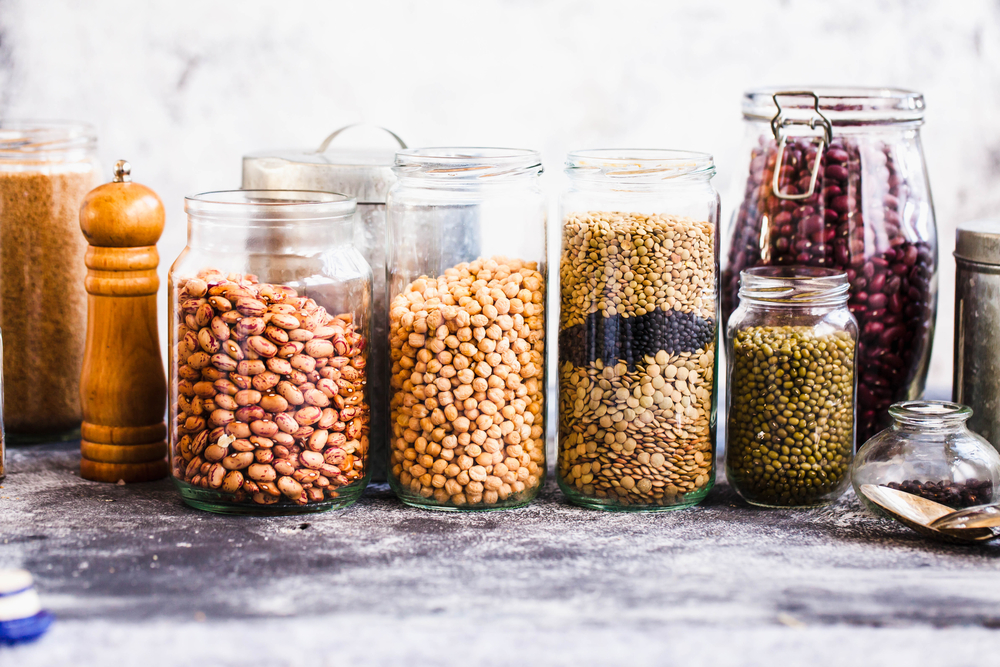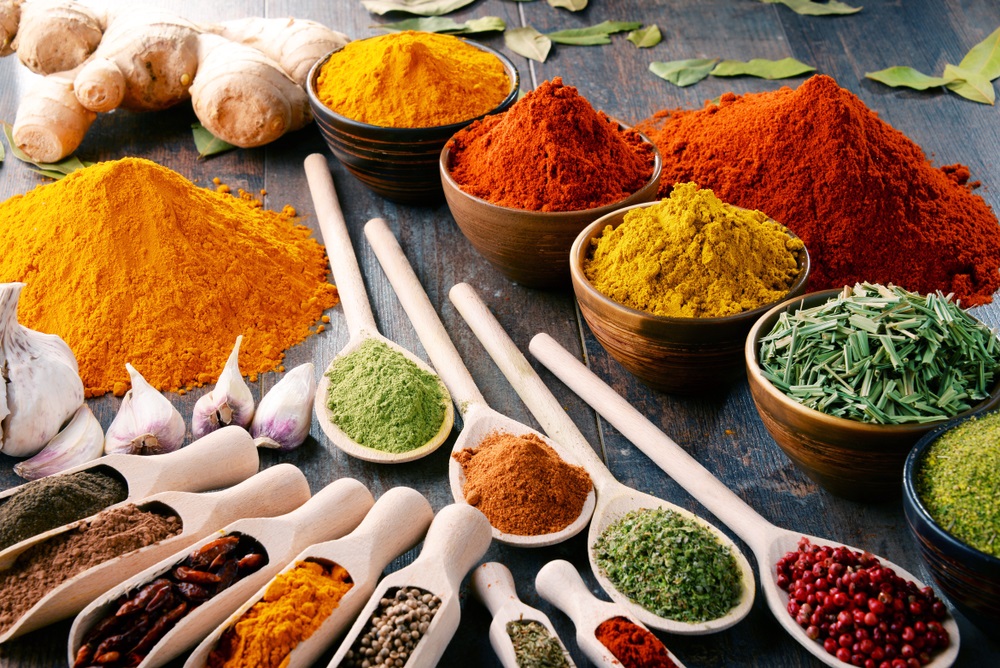
25 May Pantry Staples for a Plant-Based Diet
With veganism on the rise, it’s getting easier and easier to fill your pantry with plant-based items that make for mouth-watering meals.
The skyrocketing trend is growing largely out of an awareness for the environmental impact of large-scale meat farming methods, as well as a growing awareness of the conditions the bulk of farmed animals are raised in. Once you figure out the health benefits of giving up meat and dairy, and that plant-based doesn’t mean lacking flavour, well – your taste buds are sure to follow! Even halving your meat consumption is something you should consider (have you heard of Meat Free Mondays?).
A well-stocked plant-based pantry is great inspiration for starting a meat-free lifestyle. We’ve put together a simple guide to the basics you could dip into to create a nutrient-packed meal for any occasion, without compromising on depth of flavour.
LEGUMES
Legumes are a sturdy staple for vegans when it comes to getting in plant protein. They’re rich in fibre too, which is great for your gut and keeps you full for longer. Legumes needn’t only be eaten cooked, you can sprout many of them too, making them even more nutritious. Soaking legumes for a while before you cook with them will help you get rid of phytic acid, which may interfere with absorbing their amazing nutrients.
- Chickpeas
- Adzuki beans
- Cannellini beans
- Lentils
- Kidney beans
- GMO-free soya mince
Canned legumes can be very convenient, but be sure to look for options with as little additives as possible, or even better, legumes that have been prepared in jars – you may find these at your local organic artisan market.
GRAINS
Wholegrains also contain protein as well as complex carbs. Quinoa in particular is really high in protein. They make a great base for meals and come in convenient forms such as pasta or porridge. Grain flours are a great basis for baked goodies, though of course if you are going low carb or gluten-free, you can opt for nut and seed flours too.
- Quinoa
- Brown rice
- Millet
- Amaranth
- Buckwheat
- Pastas
- Barley
- Couscous
- Cornmeal
- Wholegrain flours such as wheat, rye, spelt.
NUTS & SEEDS
That silky creaminess you get from dairy is replaced by the wonders of nuts and seeds, which go from crunchy to creamy with the whizz of a food processor. These nature-made little nutrient packages are a major source of essential fatty acids, as well as fibre and protein. Cashews are a well-known favourite for creating amazing vegan cheese, while almonds make great nut milk. Create smoothies, sauces and pestos with a creamy touch using nut and seed butters. And of course, a few nuts and seeds tossed in a stir-fry or salad, or sprinkled over some roast veg add crunch and flavour. Hemp seeds are another super protein that dress up nicely as milk too. If you are Banting, Paleo, or avoiding gluten, nuts also make wonderful flours, such as coconut, almond and macadamia flours.
A way to add a new dimension of flavour to nuts and seeds is to roast them. The roasted flavour also ups the umami flavour to get your mouth watering. It’s a good habit to activate your nuts and seeds to make their nutrients more bio-available. Ground chia seeds mixed with water make a great egg replacement when you bake, or you could keep a ready-made egg replacer on standby.
FATS & OILS
Good fats are a cornerstone of good health and cold-pressed nut and seed oils should be a go-to. You need these fats to help you absorb important fat-soluble nutrients and build important organs such as your brain and skin. Cook with them, make salad dressings, add them to your smoothies… These fats are also your solution to replacing butter and cream. Did you know you can whip coconut cream to re-create the light, fluffy texture of whipped dairy cream?
- Extra-virgin olive oil
- Coconut oil
- Hemp seed oil
- Flax seed oil
- Chia seed oil
- Avocados & avocado oil
- Macadamia butter
- Peanut butter
- Almond butter
- Coconut butter
DRIED FRUIT & VEG
These are staples as they are so nutrient-rich and store so well they don’t need to be replaced as often as fresh fruit and veg (which of course you should be eating lots of, too!) Berries and sun-dried tomatoes are a great source of vitamin C and antioxidants, and their tart flavours mix well with nuts, salads and smoothies. Dried mushrooms, tomatoes, olives and onions add depth of flavour to your cooking too. Be sure to look for unpreserved, un-sulphured dried goods.
CONDIMENTS, HERBS & SPICES
The question people often worry about when switching to plant-based foods is how to create that complexity of spiciness and savoury flavour – commonly called umami. Here are a few vegan taste tricks:
- Chilli sauce
- Tahini
- Miso paste
- Tomato paste & sundried tomatoes
- Dried mushrooms
- Nutritional yeast
- Tamari & soya sauce
- Vinegars, wine, lemon juice (a touch of acid can do wonders to lift flavour)
- Spices
- Black & white pepper
- Indian black salt
- Chilli powder
- Cinnamon
- Cumin (especially toasted cumin seeds)
- Garlic powder
- Onion powder
- Sea salt
- Turmeric
- Paprika
- Bay leaves
- Vegan stock
- Seaweed such as dulse and nori
- Cacao powder and nibs
Another tip is to have a starter of some kind. A starter is a bacteria culture such as water kefir, Rejuvelac or any other cultured food such as kimchi or sauerkraut. These are the secret to making nut cheeses and yoghurt that taste authentic with that tangy flavour of real cheese and dairy – that’s about as umami as you can get.
Choose what spices will go with the cuisine you are cooking, for instance if you want a bobotie-like flavour, choose bobotie spices and ingredients sans the meat. Seaweed is another great resource that will up the nutritional content of your food while adding loads of minerals and nutrients. It’s a rich source of calcium, iodine and omegas, which are important if you aren’t eating seafood, and it’s a great way to sneak a natural multivitamin into kiddie’s food.
RECIPE BOOKS
There are some fantastic recipe books to inspire you with the culinary possibilities of the plant kingdom:




No Comments